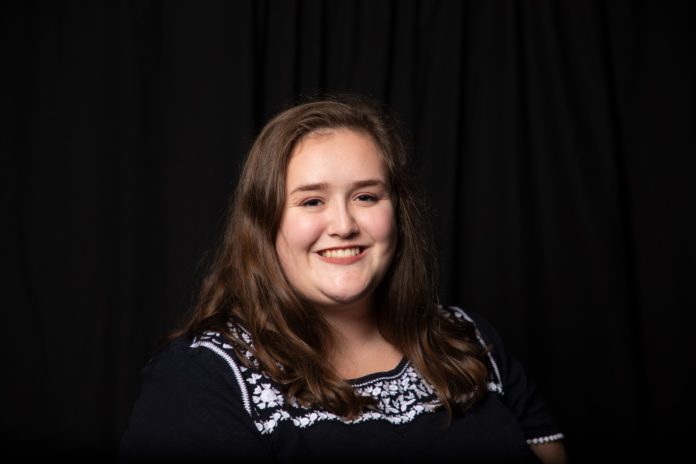By Emily Cousins | Contributor
There have been very strong reactions to Kaitlin Curtice’s chapel speech Wednesday, specifically over her prayer and the content of her message.
When I read in KWTX News 10’s article and Baylor Young Conservatives of Texas’ official statement that she prayed to “Mother Mystery,” I will admit I was skeptical of her message. However, I went online and watched her entire speech in Chapel myself, and she prays to “Mystery,” not “Mother Mystery.”
This discrepancy may not seem like a big deal, but it changes the whole meaning of her prayer. Some students were saying this was a pagan reference, but God has been referred to as a great mystery for a long time. There is a common Latin text called O Magnum Mysterium that composers have set to music for centuries that refers to the birth of Christ as a great mystery.
This is the English translation:
O great mystery and wonderful sacrament,
That beasts should see the new-born Lord
Lying in a manger
The new-born we have seen and a chorus
of angels praising God.
Alleluia.
God is a great mystery. We will probably never fully understand God, even when we enter the kingdom of heaven. His power and omnipotent presence is not something we as humans can fully fathom.
In addition, Curtice does not force her prayer on anyone.
“If you’re uncomfortable with prayer, you can think of it as a poem,” Curtice said.
She said she was reading from her book of prayers and essays. She emphasized that she thinks of her prayers in her book as poetry as well.
When you read poetry, not everything is literal. There is often imagery, personification, similes and metaphors that shape the text in a way that is meant to be art.
The real issue here is people were uncomfortable hearing things that felt like an attack. She is half Native American, and she was sharing her story and the way she connects with her heritage.
She was also making it clear the way Natives have been treated by the U.S. government has been cruel. She was bringing up things that make white Americans uncomfortable. Many Americans are strongly linked to American pride and the idea we are a country that prioritizes giving people a voice and freedom. We often push aside our faults in the past: the enslavement of black people, forcefully removing Natives from their land and imprisoning Japanese people in internment camps. All these subjects are bound to make people uncomfortable when they are not used to addressing them head on.
It should also be said that Dr. Ryan Richardson, associate chaplain and director of worship and chapel, acknowledged before Curtice went on stage her speech might be something new and different from what they were used to hearing.
“There will no doubt be others of you who say, ‘This is not something… that was easy for me to hear.’ So I just want to give you this word… Anytime there’s content on the stage that triggers you and makes you feel like, ‘I am very uncomfortable,’ I want you to remember that you can get up, and you can go to the chapel table in the back. You will still receive credit for the day,” Richardson said.
It was made clear to the students they could listen to a new perspective, or they could leave if it was too much. No one was forcing a bias. On-campus, there have been many controversial speakers invited that are from the far right-wing side of politics. This has not been seen as a problem by the majority of students, but now someone from the other side has been offered a space to speak, there is outrage.
It is extremely important Baylor brings people from many viewpoints and different ways of practicing Christianity to campus. It makes us better when we learn new things and we are challenged to question what we believe. This questioning can either make our current beliefs stronger or allow us to change. Either way, hearing from a wide expanse of ideas is the only way we can grow to be our best selves and begin thought-provoking conversations.
Emily Cousins is a junior applied music and journalism major from Houston.






